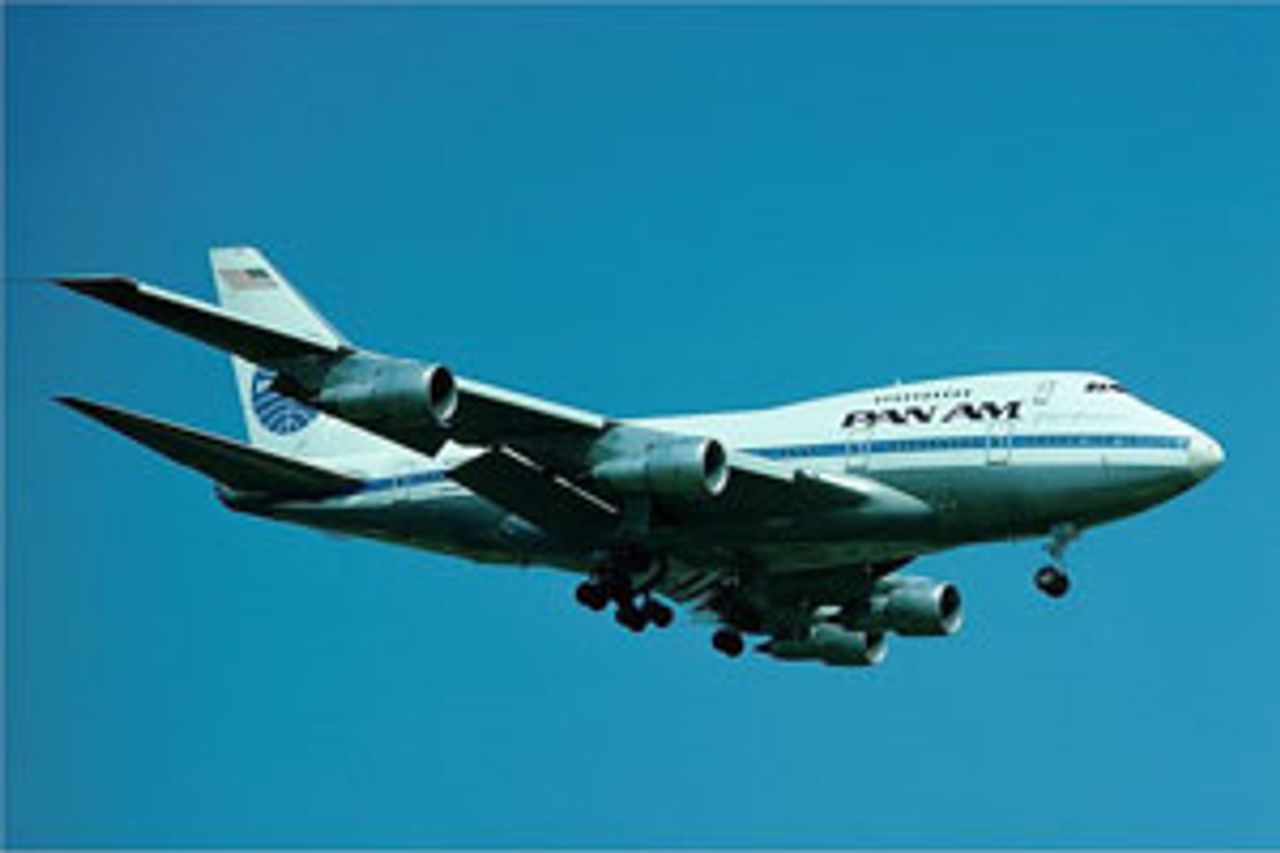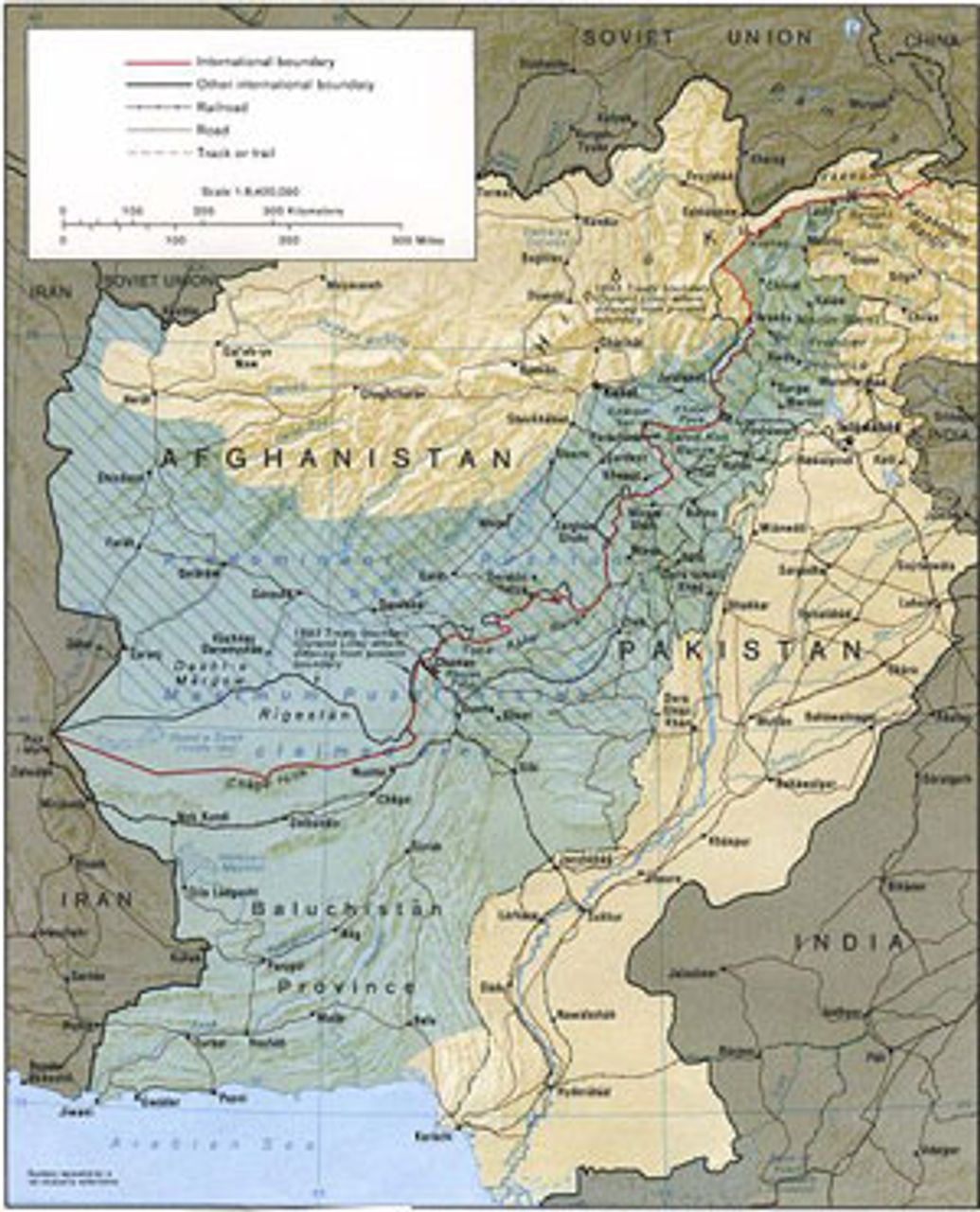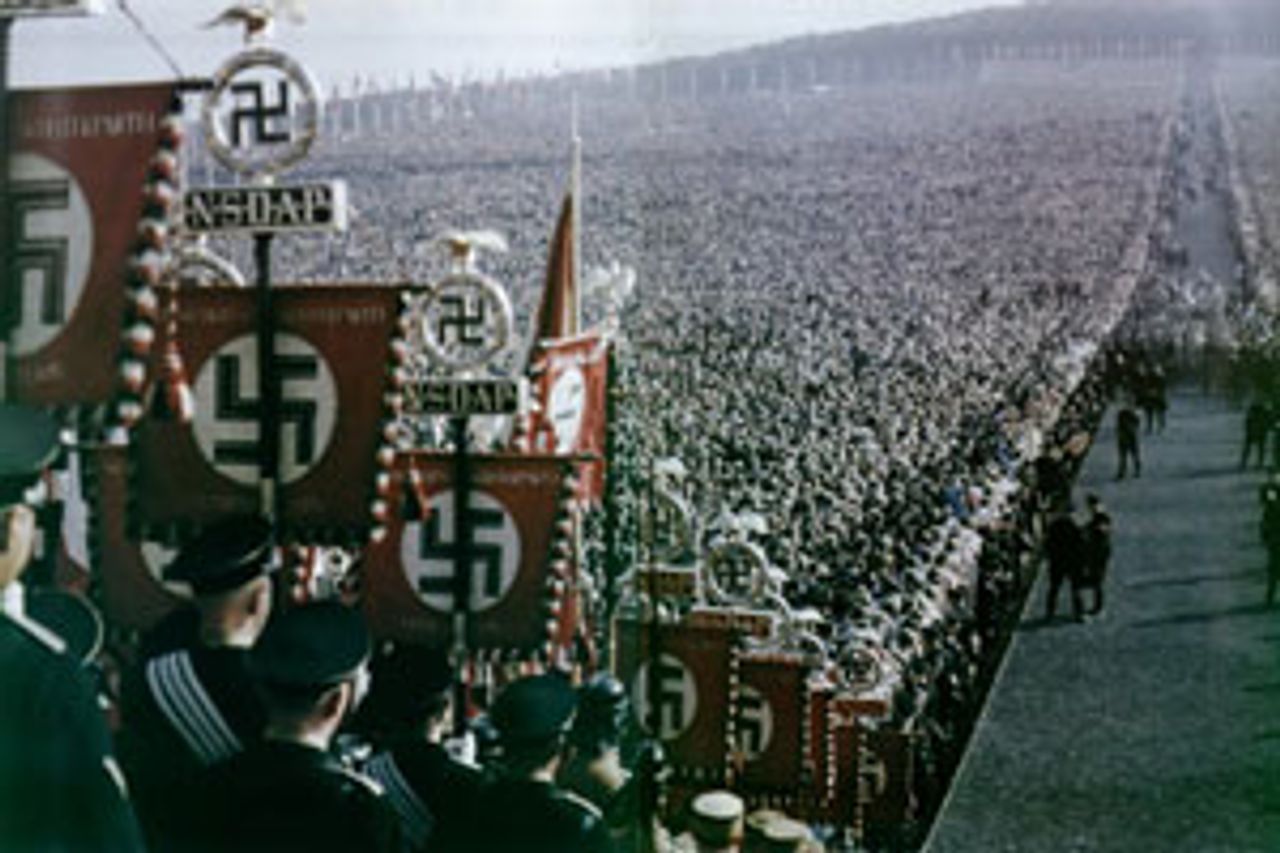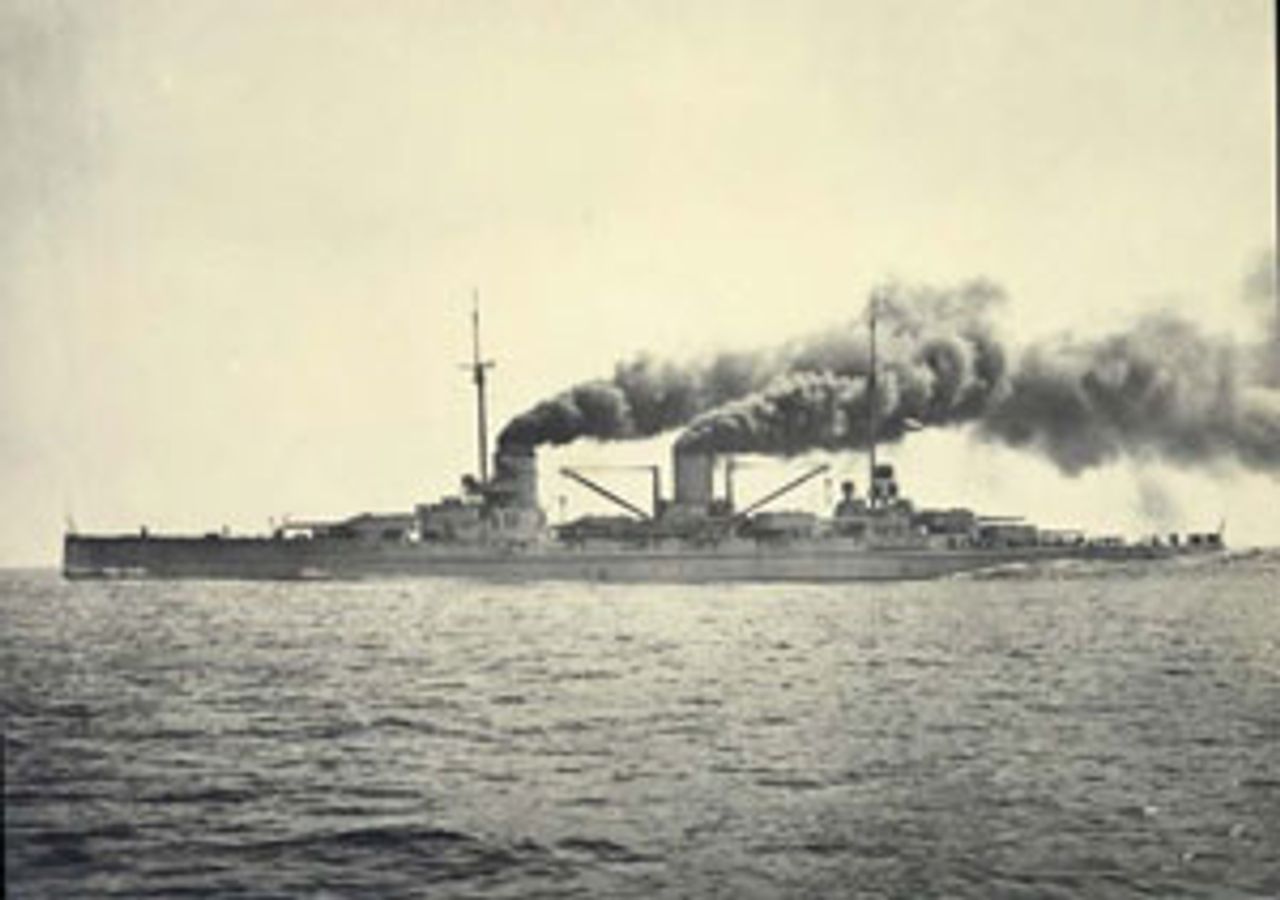This Week in History provides brief synopses of important historical events whose anniversaries fall this week.
25 Years Ago | 50 Years Ago | 75 Years Ago | 100 Years Ago
25 years ago: Pan Am Flight 73 hijacking
 A Pan Am 747
A Pan Am 747On September 5, 1986, members of the Abu Nidal terrorist organization boarded and attempted to hijack Pan Am Flight 73 as it sat on the tarmac in Karachi, Pakistan. Unable to arrange for the plane’s flight for Cyprus, as demanded, the gunmen eventually opened fire on the passengers aboard, killing 20 and injuring dozens among the Boeing 747’s nearly 400 passengers and crew.
The hijackers learned soon after seizing the plane at 6 a.m. that the pilots were not on board. Demanding their return, the lead hijacker, Zaid Safarini, shot and killed a 20-year-old Indian American, Rajesh Kumar, tossing his body on the tarmac. Later, at 9 p.m., the power on the plane died due to battery failure or else through the intervention of Pakistani authorities. As a result the plane’s radio and lights failed. At this point, the terrorists gathered the passengers together and, at about 10 p.m., opened fire with automatic weapons and also exploded grenades. Passengers and the flight crew, who testified that the large Pakistani military present at the airport provided no assistance until after the shooting stopped, managed to open doors and escape as the shooting continued. Among the dead were 12 Indians and 3 Americans—the flight originated in Mumbai and was destined for New York City—3 Pakistanis, and 2 Mexicans. Four hijackers were arrested.
Two days later, on September 7, terrorists attacked a synagogue in Istanbul, killing 22. Both attacks were linked to the Abu Nidal Organization, which had been funded or housed by the governments of Iraq, Syria, and Libya, and which in its recruiting preyed on the desperation of young, dispossessed Palestinians. The terrorist attacks in fact strengthened the hand of US imperialism and its Middle Eastern allies in Israel, Egypt and Saudi Arabia, by providing a rationale for heightened police repression and Israeli incursions into Palestinian areas and Lebanon.
50 years ago: Afghanistan, Pakistan break off relations
 The red line is the border between Pakistan and
The red line is the border between Pakistan andIndia. The area shaded blue is populated predominately
by Balochs and Pashtuns
On September 6, 1961, Afghanistan severed all diplomatic ties to neighboring Pakistan. The move came days after Pakistan blocked the transport of Afghan goods to India and two weeks after Pakistan had closed its consulates in Afghanistan. The Soviet Union, which had been competing with the US for influence in landlocked Afghanistan, quickly announced that it would move the goods—largely pomegranates and grapes—via airplanes to India.
Relations between the two countries, tense for years, had deteriorated sharply in 1961, after Pakistan claimed Afghan soldiers disguised as Pashtun tribesmen had launched cross-border attacks. On either side of the rugged border were large numbers of ethnic Pashtuns who migrated annually from the mountains of Afghanistan in the summer to lower-lying areas of Pakistan in the winter. Using the cross-border raid as a pretext, Pakistan banned this migration, blocking an estimated 250,000 Pashtuns from their traditional way of life.
The division of the Pashtun and neighboring Baluchi populations between Afghanistan and Pakistan had its origins in the creation of the Durand Line in 1893. That year British colonial agents in India, having suffered defeats in two previous attempts to subdue Afghanistan, agreed to an arbitrary, and at the time entirely unenforceable, 1,610 mile line along British India’s northwestern border. After Pakistani and Indian independence in 1947, Pakistan insisted that the Durand Line, drawn up by British imperialism, be maintained, while Afghanistan refused to recognize its legitimacy.
75 years ago: Nazis hold Nuremberg rally
 1936 Nazi rally at Nuremberg
1936 Nazi rally at NurembergOn September 9, 1936, in his opening address to the annual Nazi party rally in Nuremberg, Adolf Hitler declared that the “greatest world danger” was the “revolutionizing of the continent” by “Bolshevik wire pullers” controlled by “an international Jewish revolutionary headquarters in Moscow.” The conflation of Jews and socialists was carried on by other speakers, including Hermann Göring and Rudolf Hess. The threat of revolution was invoked as justification for German military aid to the Spanish fascists of Francisco Franco. Hitler also repeated Germany’s demand for colonies and lebensraum in the East, i.e., the Soviet Union. The rally’s main exhibition, held aboard 12 railway carriages, was entitled “World Enemy No.1 – Bolshevism.”
Hitler also announced a new industrial Four-Year Plan and placed Göring in sole charge—“the German economy [would be] henceforth subordinated to one purpose, preparation for war,” according to historian Alan Bullock. Göring had only recently emerged victorious in a power struggle with economics minister Hjalmar Schacht over the allocation of increasingly scarce resources, with Göring’s position prevailing, that the lion’s share go to military rearmament rather than towards consumer goods.
Later on September 11, a mass parade was held in the Führer’s honor, involving 40,000 men from the Labor Service, 60,000 storm troopers, 40,000 SS men, and a further 40,000 Hitler Youth. The 1936 Nuremberg rally was called the “Rally of Honor,” in tribute to the Wehrmacht’s remilitarization of the Rhineland earlier that year in defiance of the Treaty of Versailles.
100 years ago: Germany launches largest-ever war games
 A German naval vessel in 1912
A German naval vessel in 1912On September 9, 1911, Germany launched the largest war games in history, dividing 900,000 soldiers into two armies to prepare for a general European war. The same day Germany delivered its response to the latest French proposal to resolve the crisis over Morocco. Berlin proposed to accede to France’s paramount role in the North African country, so long as Germany was granted economic privileges. This France rejected out of hand.
Earlier in the week Kaiser Wilhelm viewed exercises of 99 ships of Germany’s naval fleet, the world’s second largest. The UK, with the world’s largest fleet, was also engaged in war exercises off the coast of Scotland, and on September 10 ordered a rushed delivery of 20,000 tons of top grade coal from Cardiff to Scotland in preparation for possible combat. France had carried out naval exercises of a fleet of 50 ships on September 4, and, during the first two weeks of September, leading French banks cancelled or refused to renew loans to German concerns. Among these was Société Générale, which refused to renew a 6 million franc loan to Deutsche Bank.
The prospect of a general European war posed a decisive test for the socialist parties and trade unions in each country. August Bebel, in a September 10 speech to the German Social Democratic Party (SPD) Congress in Jena, said that the intervention of the UK against Germany in the Morocco crisis made German rearmament inevitable. He said that the SPD would instead commit itself to removing duties on the importation of foodstuffs so that the increased military spending would not lead to hunger in the working population.
